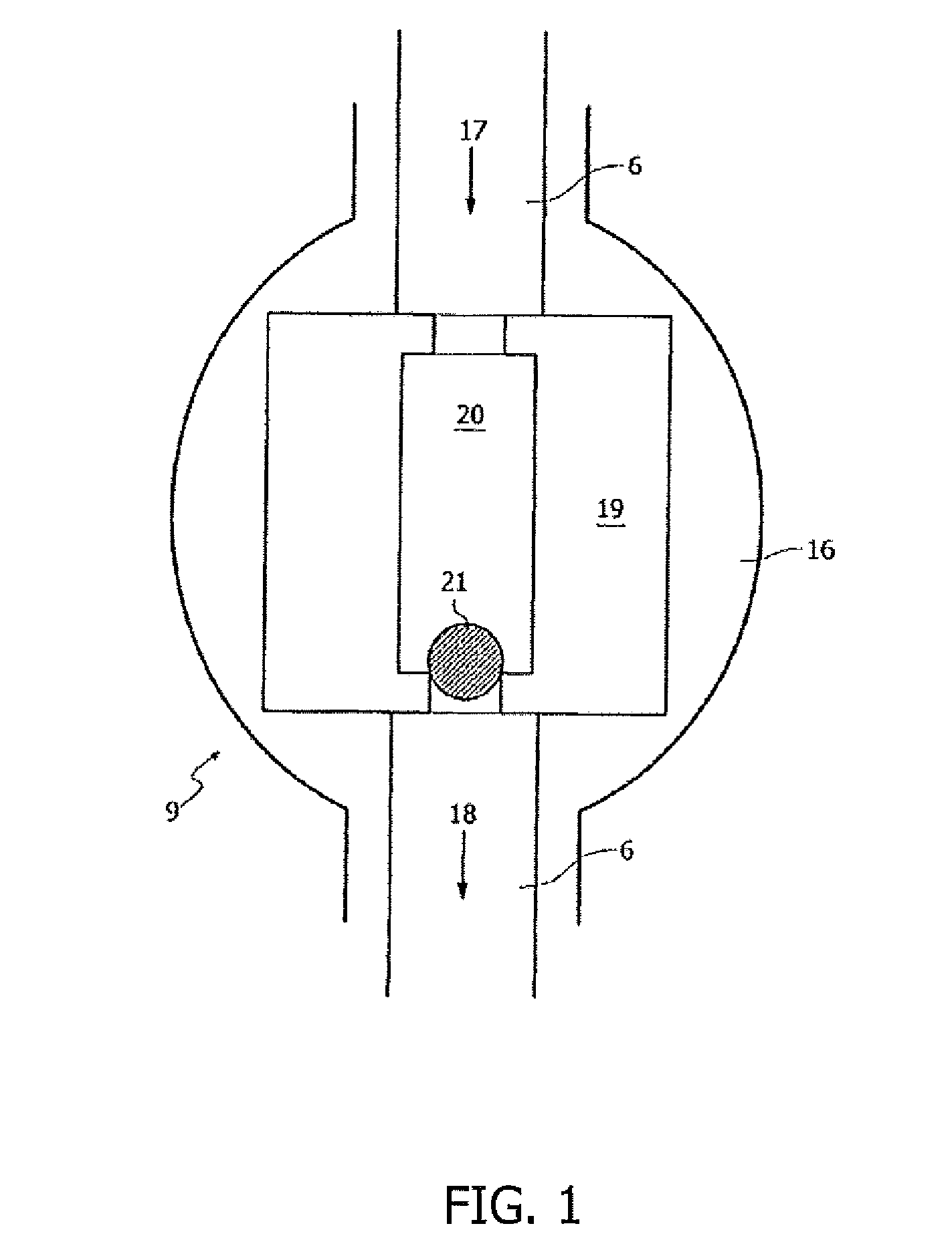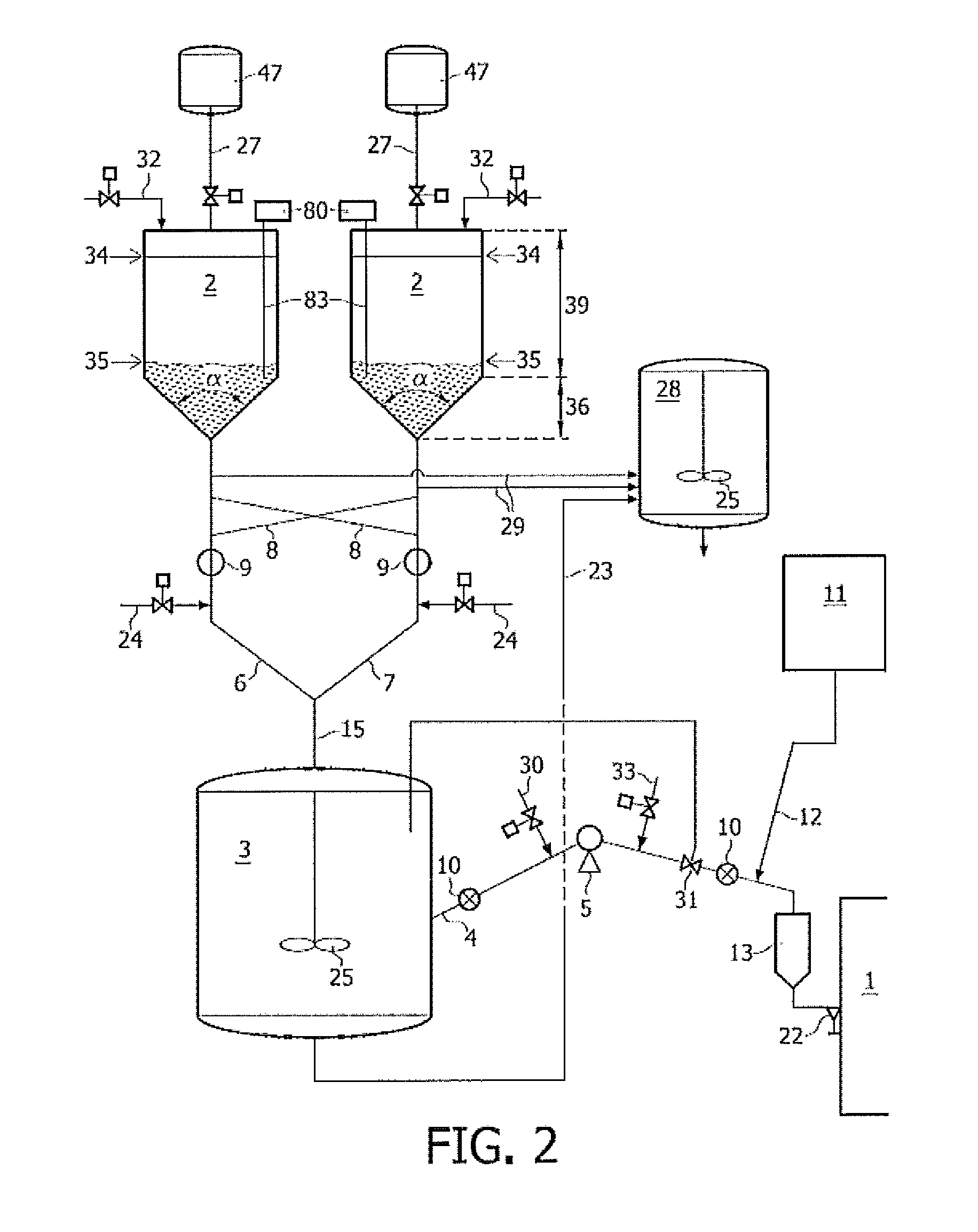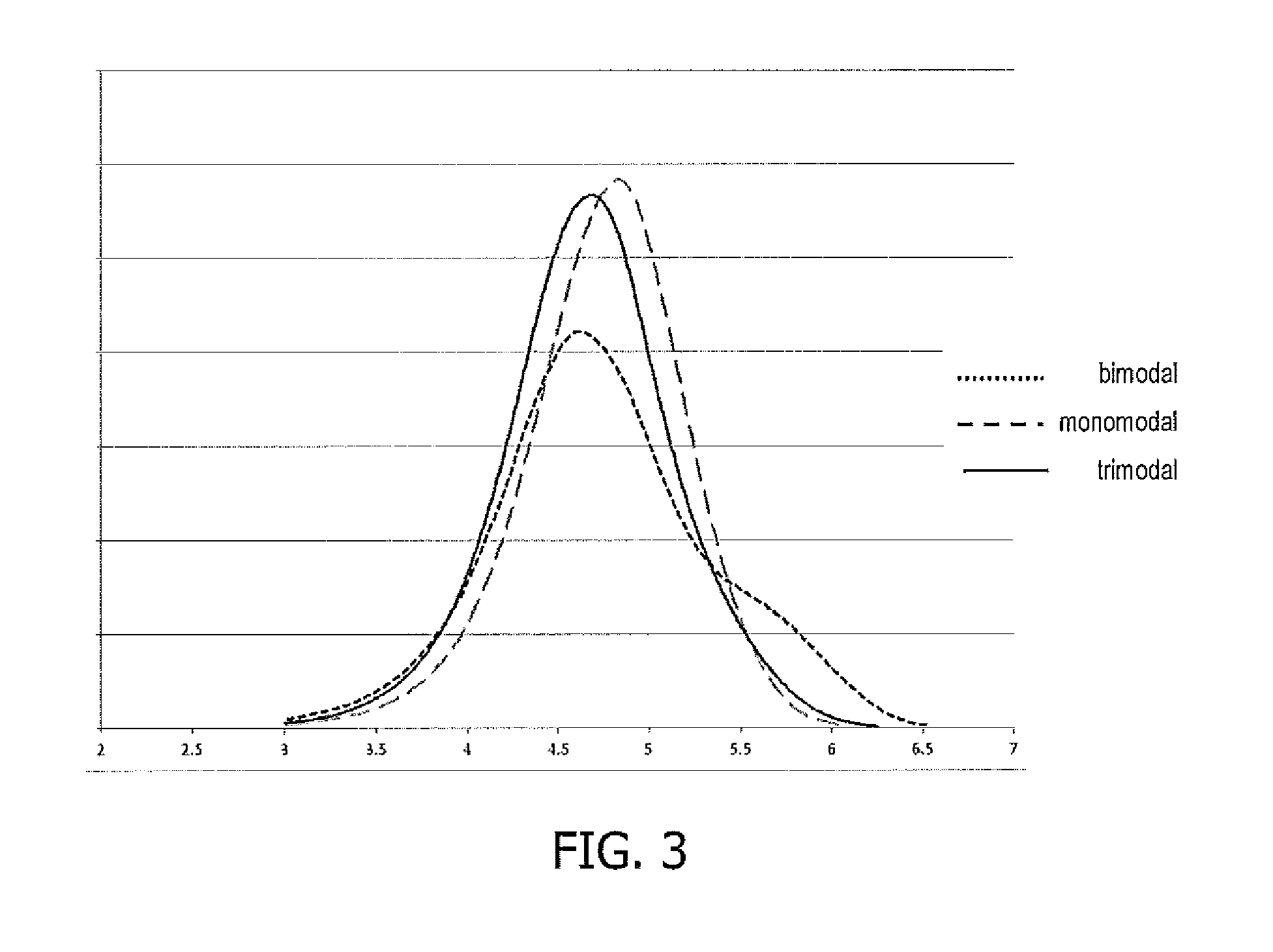Method for producing a catalyst slurry blend
a catalyst slurry and blend technology, applied in chemical/physical processes, chemical apparatus and processes, etc., can solve the problems of long transition period, unsuitable for further use production of transition materials, and disturbances of the steady state regime of polymerization reactors, so as to reduce the amount of transition products produced, reduce the loss of production time, and maintain the effect of mixing between blends
- Summary
- Abstract
- Description
- Claims
- Application Information
AI Technical Summary
Benefits of technology
Problems solved by technology
Method used
Image
Examples
example 1
[0098]This example describes the preparation of a catalyst slurry blend of metallocene catalysts and feeding this blend to an ethylene polymerization reactor for the production of a multi-modal polyethylene. The method will be described using a device as illustrated by FIG. 2.
[0099]A metallocene catalyst is solid and is generally provided under a dry form in commercially available packaging. Depending on the diluent used, it may be required to bring the catalyst under higher pressure conditions in the container 47. This is for instance the case when isobutane is used, since this diluent is only liquid at higher pressure levels.
[0100]Preferably pressurizeable catalyst supply containers are used. Pressurizeable containers may be suitable for direct use and coupling to an inlet provided on the mud pot. Use of a larger size pressurizeable container for transportation and supply is therefore preferred. The pressurizeable catalyst supply vessel 47 is preferably suitable for handling press...
example 2
[0128]A blend of 2 different catalysts was prepared as follow: A first ethylene polymerization catalyst (CATA A) was transferred at a first mass flow rate of 3.5 g / h to a mixing vessel, simultaneously a second ethylene polymerization catalyst (CATA B) different from the first one was transferred at a second mass flow rate of 6.5 g / h to said mixing vessel. The flow rates were monitored thereby obtaining a catalyst slurry blend at a concentration suitable for polymerizing ethylene. The activity of each catalyst was 5000 g / g. The catalyst slurry blend then fed to a polymerization double loop reactor, comprising a polymerization slurry of ethylene monomer, comonomer, and diluent. The productivity of the reaction was 50 kg / h of polyethylene, and a trimodal polyethylene was produced. For, comparison a monomodal polyethylene was produced separately using only catalyst A. A Bimodal polyethylene was produced separately using only catalyst B.
[0129]The characteristics of the trimodal polyethyl...
PUM
| Property | Measurement | Unit |
|---|---|---|
| angle of repose | aaaaa | aaaaa |
| angle of repose | aaaaa | aaaaa |
| angle of repose | aaaaa | aaaaa |
Abstract
Description
Claims
Application Information
 Login to View More
Login to View More - R&D
- Intellectual Property
- Life Sciences
- Materials
- Tech Scout
- Unparalleled Data Quality
- Higher Quality Content
- 60% Fewer Hallucinations
Browse by: Latest US Patents, China's latest patents, Technical Efficacy Thesaurus, Application Domain, Technology Topic, Popular Technical Reports.
© 2025 PatSnap. All rights reserved.Legal|Privacy policy|Modern Slavery Act Transparency Statement|Sitemap|About US| Contact US: help@patsnap.com



